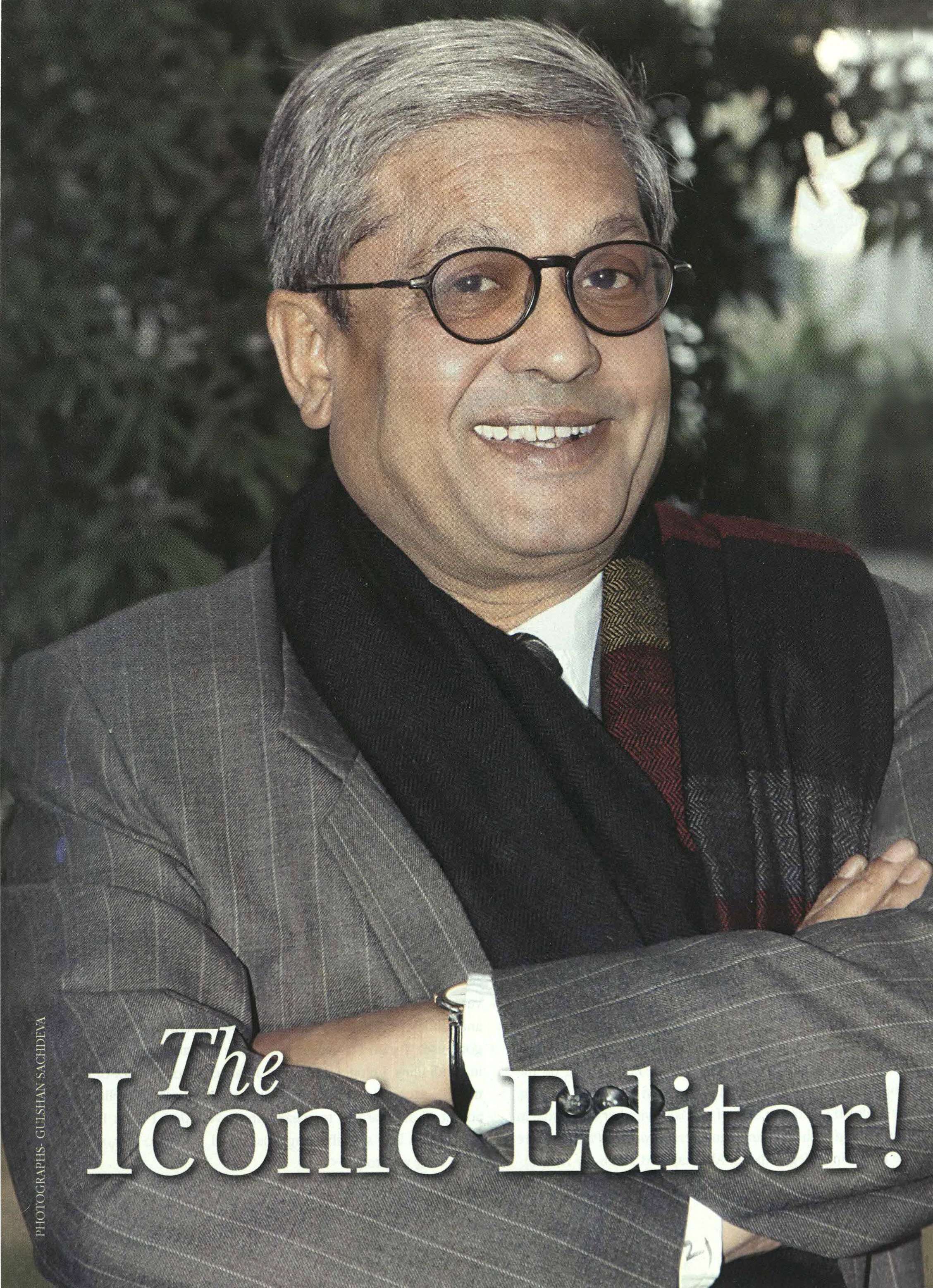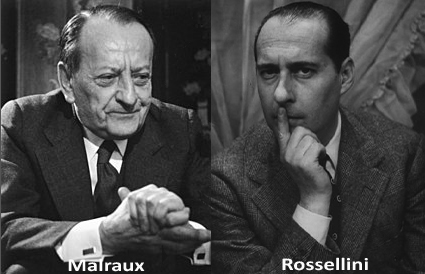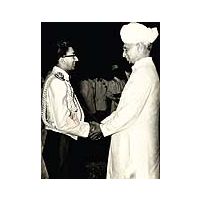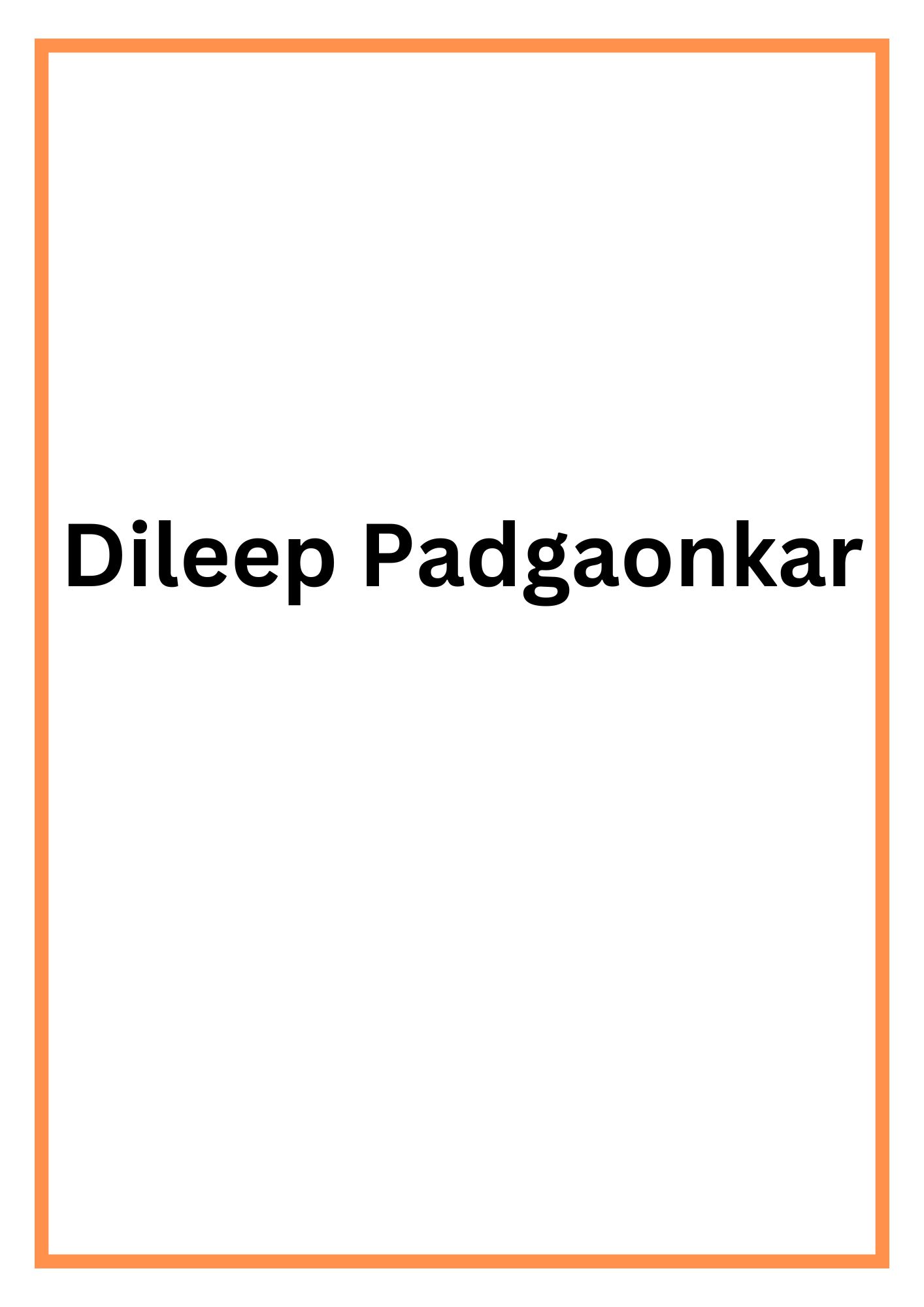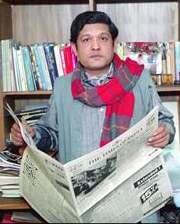Dileep Padgaonkar (b.1944-d.2016) was a veteran journalist, editor, and author. He was best known for his work as the editor of the Times of India, where he oversaw the newspaper's transition into digital publication. He was a prominent commentator on Indian politics and society and wrote extensively on a wide range of topics including literature, culture and international affairs.
Padgaonkar graduated in political science from Fergusson College, Pune, and went to France for further studies. After receiving a doctorate in humanities from the University of Paris, Sorbonne (June 1968), he joined the Times of India as its Paris correspondent, where he covered May 1968 civil rights movement that spread through entire Europe.
Padgaonkar took a break from the Times of India (1978-1986) to serve at UNESCO, first in Bangkok and later at its headquarters in Paris. In 1988, he returned to the Times of India and served the paper in various capacities where he quickly rose through the ranks to become its editor. As the editor, he played a key role in shaping the direction of the newspaper. He also worked to strengthen the paper's coverage of national and international news and focused on providing an in-depth analysis and commentary on current events.
In 1994, Padgaonkar left the Times of India to work independently. He filled many roles wherein he started an independent media venture, Asia-Pacific Communication Associates (APCA) as its Chairman; produced a breakfast show in Kashmiri in Srinagar; brought out three newspapers in English, Nepali and French in Nepal and Mauritius. In 1995, he started Biblio, a book-magazine which reviewed an extensive range of fiction and non-fiction works. Between 1998 and 2002, his association with the Times of India again continued as he was appointed executive managing editor and consulting editor thereafter.
In recognition of his excellent services to journalism, Padgaonkar was awarded the Legion d’Honneur, France’s highest civilian award, by President Jacques Chirac in April 2002. In 2006, he was appointed as a member of the National Commission for Minorities by the Government of India for a period of three years. Meanwhile, in 2008, he was also appointed as the editor of India and Global Affairs, an international journal.
In 2010, the Government of India appointed Padgaonkar as a chairman of the three-member interlocutors’ panel along with Prof. Radha Kumar and Prof. M.M. Ansari to seek a political settlement in Jammu and Kashmir. During this period, he interviewed several people and politicians of the state.
In addition to his work as a journalist, Padgaonkar was a prolific writer, a commentator and a frequent contributor to various magazines and newspapers on topics such as film, gastronomy and politics. He conducted several interviews with national and international politicians, writers, film makers and thinkers such as Amartya Sen, Vaclav Havel, Regis Debray, Louis Malle, V.S. Naipaul, Salman Rushdie, Orhan Pamuk, M.N. Srinivas, Nirad C. Chaudhuri, D.D. Kosambi, and others. He also authored a book Under Her Spell (2008) in which he traced the life of famous Italian film director Roberto Rossellini and his trip to India in the 1950s.
About the Collection: The papers of Dileep Padgaonkar are of an enormous value for the study of contemporary international politics and journalism. The collection includes interlocutors’ panel report on Jammu and Kashmir and his articles and writings on various themes including literature, culture, food, gastronomy, France and French novelist Andre Malraux. There are transcripts of his interviews and photographs with several Indian and French personalities such as R.K. Laxman, S.H. Raza, Stephane Hessel, Jean Bhownagary, Jeanne Moreau, George Whitman, and others. Feedbacks and congratulatory correspondence related to his book Under Her Spell and French award the Legion d’Honneur are also part of the collection. (Catalogue available)
Donor: Latika Padgaonkar
Acquisition: 2022



